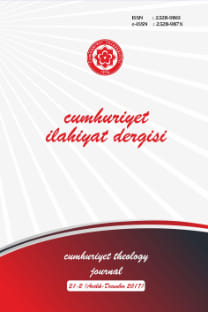Akdağ, Özcan. "Gazâlî ve Aquino'lu Thomas'a Göre Tanrı'nın Özgürlüğü". Doktora tezi, Erciyes Üniversitesi Sosyal Bilimler En- stitüsü, Kayseri 2015
Bu çalışmanın temel amacı, Tanrı'nın fiillerinde özgür olup olmadığı meselesini Gazâlî ve Thomas ekseninde ele almak ve onların iddialarını, haklılık ve iç tutarlılık açısından incelemektir. Bu amaç doğrultusunda Giriş bölümünde soruna dair genel bir bilgi verilmiş ve bu konuda yapılmış çalışmalardan bir kısmı ele alınarak değerlendirilmiştir. Tezin birinci bölümünde, özgürlük kavramından ne anlaşıldığı, determinizmle ilişkisi, Tanrı'nın özgürlüğü sorununun ontolojik ve semantik boyutu ele alınmış ve meselenin tarihsel süreçte nasıl algılandığı tasvir edilmiştir. Çalışmanın ikinci bölümünde, Thomas'ın Gazâlî'nin fikirlerinden nasıl ve ne şekilde etkilendiği ortaya konulduktan sonra her iki düşünürün uluhiyet anlayışı ele alınmış, bu bağlamda onların benzeştikleri ve ayrıştıkları noktalar tespit edilmiştir. Üçüncü bölümde ise, Gazâlî ve Thomas'ın Tanrı-Âlem ilişkisine dair görüşlerine yer verilmiş ve Tanrı'nın özgürlüğünün tezahürü olarak değerlendirilebileceğini düşündüğümüz yaratma, mucize, ahlakî değerlerin ilahî emirlerle ilişkisi gibi konular ele alınmıştır
Akdag, Ozcan. "Divine Freedom in al-Ghaz?l?and Thomas Aquinas".Phd. Dissertation, Erciyes University Institute of Social Sciences, Kay-seri/Turkey2015.
The main purpose of this study is to examine whether God can be free in His actions according to al-Ghazali and Thomas Aquinas, whether their assessment on divine actions has legitimacy and internal consistency. For this purpose, in the Introduction, it was given some general explanations on the problem and some works were done about this matter are taken into consideration and evaluated. In the first part of the dissertation, I tried to analyze the concept of 'freedom' and its relation to determinism. I also tried to give some explanations in terms of ontological and semantical aspects of the divine freedom. After these explanations, I pictured historical panorama of the problem of divine freedom and how to be understood divine actions in the historical period. In the second part of the dissertation, I tried to demonstrate how interaction took place between al-Ghazâlî and Thomas Aquinas. After this step, I took into consideration the concept of God in al-Ghazali and Thomas Aquinas, and I tried to give their resemblances and differences about this matter. In the third part of the dissertation, I considered their ideas about GodWorld relationship. In this context, I took in to consideration the issue of indicators of God's freedom, like creation, miracles, relation between moral truths and God's commands
